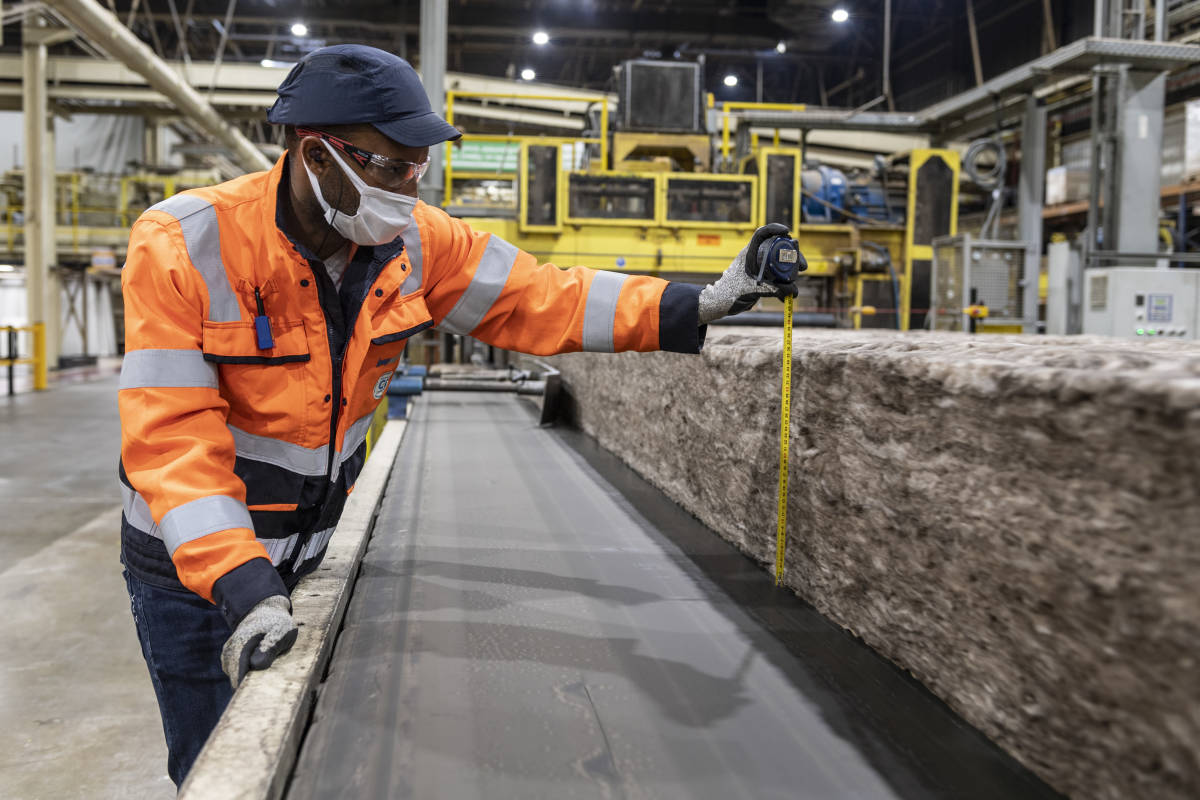How quality inspires sustainable solutions at Knauf Insulation

12-20-2021
Knauf Insulation has always been in the business of sustainability — reducing emissions, saving energy and creating better buildings for the benefit for people and the planet.
And we have always recognized that the success of our business depends on how effectively our products and systems deliver these social and environmental benefits.
In other words, quality.
Buildings use around 40% of global energy and emit more than a third of the world’s emissions.
“Decarbonizing North America’s existing building stock will require a combination of new technology with tried and true solutions such as insulation,” says Brett Welch, Director of Sustainability at Knauf Insulation North America. “For example, adding just one 3’ section of pipe insulation to a steam line can displace as much carbon as over 100 trees.”
Beyond standards
We go beyond standards by working closely with our customers to gain understanding of their markets. For Knauf, a quality product not only meets their needs but also proactively anticipates their needs in future. Such customer-centricity has led to milestone sustainable innovations such as ECOSE® technology, which is the smarter alternative to the traditional phenol formaldehyde binders used in fiberglass insulation.
Sustainability has also inspired continuous improvement in every area of our customer-centricity such as increasing the amount of recycled glass in our fiberglass insulation.
Quality assurance and sustainability
Quality assurance for Knauf Insulation means focusing on quality at every stage of our products’ lifecycle through data-driven understanding.
Assessing quality cannot be left until the product is formed and packed. That is too late. We embed quality assurance into every step of our process.
Quality assurance also means focusing on sustainability — examining how Knauf Insulation can reduce waste and shrink its carbon footprint and energy use at every step of every process.
Knauf Insulation uses the Life Cycle Assessment method to understand where our product manufacturing process has the most effect on carbon emissions. This allows us to assess our own direct and indirect impacts and make continued improvements to lower our own overall carbon emissions.
Direct environmental action
World resources are finite and there is an urgent need to decarbonize our economies.
More and more customers are demanding sustainable products and direct environmental action around the world has moved to the top of international agendas.
We understand the elements, materials and processes needed to make the right quality products as well as what is required for them to be more environmentally sustainable.
However, there is always a fine balance. Quality and sustainability must always go hand-in-hand. We will never knowingly compromise the quality of our products.



